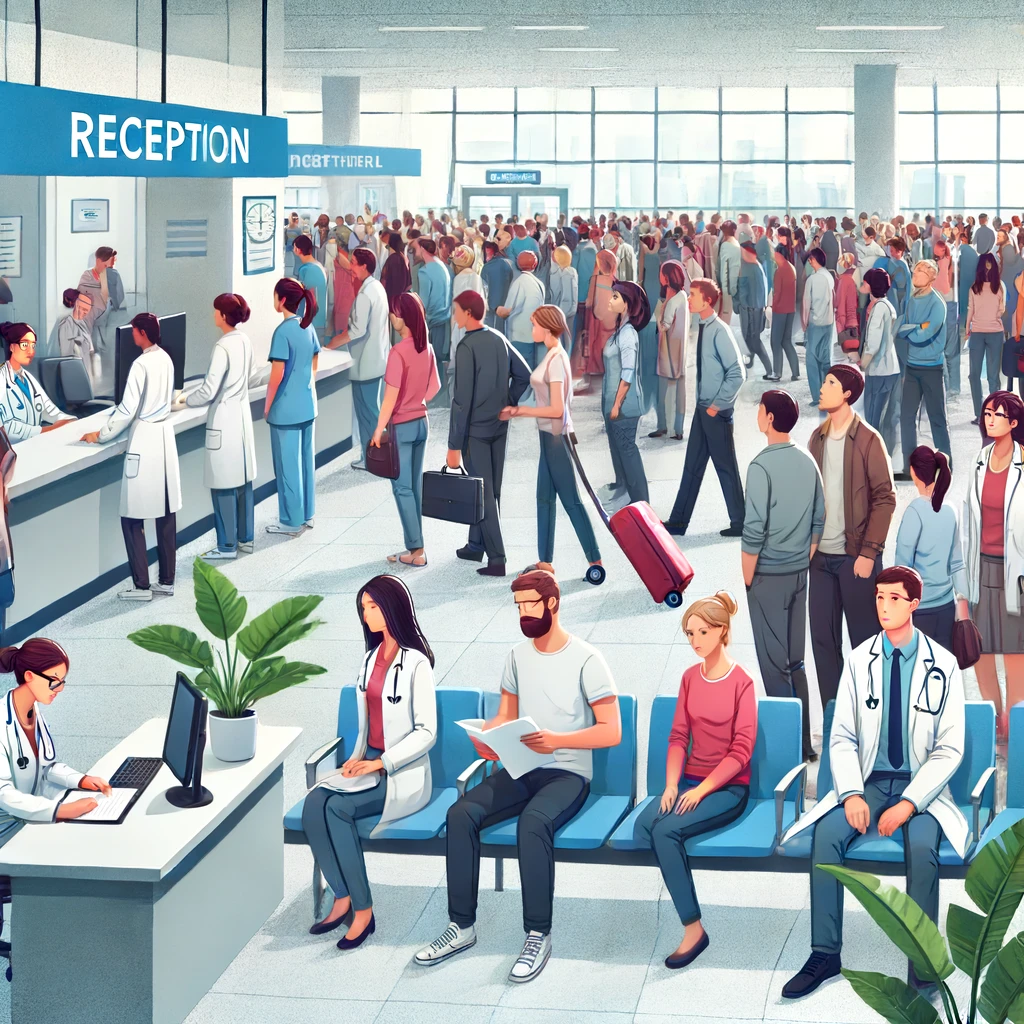
The 2024 medical crisis in South Korea emerged due to the government's plan to increase the number of medical school enrollments, which led to significant opposition from medical professionals and trainees. This crisis resulted in a large number of resident doctors and interns resigning en masse, causing substantial disruptions in medical services. Below is a detailed explanation of this situation.
Background
The South Korean government announced a plan to increase medical school enrollments by 2,000 students annually from 2024, aiming to significantly boost the number of doctors by 2035. This plan was motivated by the increasing medical demand due to an aging population and a reduction in doctors' working hours. The government aims to reduce medical expenses and improve accessibility to healthcare services through this plan.
Position of Residents and Medical Associations
Residents and medical associations strongly oppose the government's plan to increase medical school enrollments. Their main demands include:
- Complete withdrawal of the essential medical policy package and the plan to increase medical school enrollments.
- Establishment of an organization for scientific calculation of medical workforce needs.
- Expansion of specialist recruitment in training hospitals.
- Legal relief for unavoidable medical accidents.
- Improvement of poor training environments for residents.
- Complete retraction of unjust orders that intimidate residents and a formal apology.
- Abolition of Article 59 of the Medical Service Act, which mandates the commencement of work.
Development of the Situation
Following the government's announcement, residents collectively submitted resignation letters and declared leaves of absence. As of February 2024, approximately 10,034 interns and residents from 100 hospitals nationwide had submitted resignation letters, with 9,006 of them leaving their posts. In response, the Ministry of Health and Welfare issued orders for 6,228 interns to return to work.
Government Response
The government is mobilizing public healthcare institutions and military hospitals to fill the medical service gap. Additionally, they have fully permitted telemedicine to ensure the continuity of healthcare services. The government stated that they would not hold residents accountable if they returned to work by February 29.
Outlook and Impact
This situation destabilizes the healthcare system and may lead to issues where patients do not receive adequate medical services. Negotiations between the government and the medical sector are crucial, and urgent solutions are needed to minimize the impact on patients.
This concludes the detailed explanation of the 2024 medical crisis. For additional information, please refer to related news articles and government announcements.

Viewing the 2024 Medical Crisis from the Perspective of the Public
There are several important concerns and viewpoints when looking at the 2024 medical crisis from the public's perspective.
Accessibility and Safety
The foremost impact of the medical crisis is on the accessibility of healthcare services for the public. The mass resignation of resident doctors and the resulting shortage of medical staff disrupts medical appointments and surgery schedules significantly. This is particularly dangerous for critically ill patients or those in emergency situations who may not receive timely and adequate medical care. This poses a direct threat to the health and lives of the public.
Quality of Medical Services
The medical crisis can also greatly affect the quality of medical services. The absence of skilled residents and specialists can decrease the accuracy and efficiency of medical treatment. The public may experience a decline in the quality of healthcare services, which could have long-term negative effects on overall public health.
Economic Burden
The interruption or delay in medical services due to the medical crisis can increase the economic burden on the public. More time and money may be required to receive medical care, and this burden is especially heavy on vulnerable populations.
Conflict Between Government and Medical Sector
The ongoing conflict between the government and the medical sector creates anxiety among the public. Continuous opposition from the medical sector to government policies leaves the public unsure of whom to trust. This conflict can erode public confidence and increase skepticism towards the entire healthcare system.
Expectations for Solutions
The public expects the government and the medical sector to negotiate and reach a compromise swiftly. The government should prioritize the health and safety of the public, while the medical sector should propose cooperation and alternatives to minimize public harm.
Summary
From the public’s perspective, the 2024 medical crisis raises serious concerns about healthcare accessibility, service quality, economic burden, and the conflict between the government and the medical sector. In this situation, it is crucial for both the government and the medical sector to prioritize the health and safety of the public and quickly formulate effective solutions.



